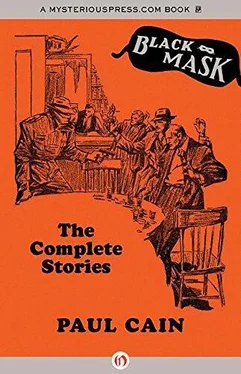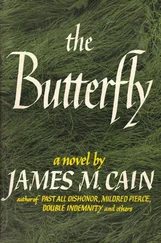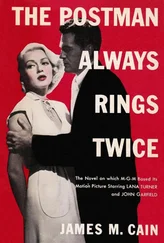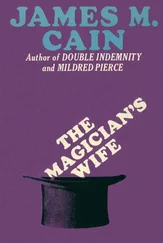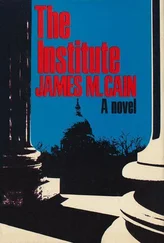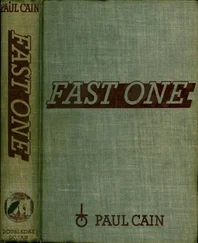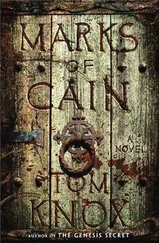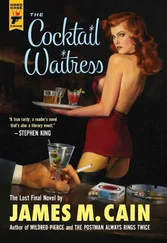Twenty-five, thirty, thirty-five cents; the meter ticked on and Lonny’s heart and hopes beat with it. They had turned north again on Lenox Avenue, were approaching a Hundred and Fiftieth. He realized with a sudden sinking twinge that the meter wouldn’t make it; it seemed to have curled up and died at thirty-five, then it clicked to forty and he sighed. It would never make it.
If he could only cross a Hundred and Fiftieth, act like he’d missed it, they’d have to go on for two blocks to reach the next east-bound street. That, according to his calculations, would just about make it. He set his jaw, stepped on the gas.
The man hammered on the glass, yelled: “Hey! You passed it!”
Lonny slowed down a little and turned an elaborately innocent mask to his practically apoplectic passenger.
“Gee! Ah guess Ah did, at that,” he said.
The man shoved the door open suddenly and stepped out on the running board, swung to the street. That was something Lonny hadn’t counted on; he jammed on the brakes, twisted in his seat to call plaintively:
“Ah’m sorry, Mistah, Ah plumb missed it. Get back in an’ Ah’ll get you theah in jig-time.”
But the man was crossing the street swiftly. He glanced back and his mouth moved viciously and a sound as of distant, angry waves came faintly to Lonny’s ears.
He wailed, “You foahgot to pay me,” but another cab — a very shiny and new one — had cut in between them and he disconsolately watched the man get into it and whirl away around the corner, east on a Hundred and Fiftieth.
He knew that shiny new cab. It belonged to Clint Waller, and more than the break in his chain of fives, more than the loss of his fare, that weighed like a bitter leaden pill in Lonny’s insides. Clint Waller had crossed his path before, unpleasantly. There was the matter of an argument over a crap game after which Lonny had come to in the hospital with a slashed cheek, and there was the matter of a certain high-yellow gal...
He savagely jerked the gear lever into reverse, backed into an alley, spun around the corner. He was too intent on catching up with Clint Waller to notice the dark green sedan that had followed from a Hundred and Twenty-fifth Street, stopped half a block back on Lenox while its occupants narrowly watched his passenger change cabs, then followed swiftly east.
He roared across a Hundred and Fiftieth, darting miraculously in and out of traffic, gaining rapidly. He came abreast of the green sedan. Then he saw Clint’s cab pull up and stop in front of Fifty-five, the red-faced man get out; he shoved the throttle to the floor. The sedan cut in swiftly, slowed, and as it passed there was sudden thunder, and orange flame spouting from its side; the red-faced man sank down to his knees and fell forward, smashed his face against the running board.
Lonny kicked the brake, tires shrieked as the cab shuddered to an abrupt stop.
He saw Waller start to get out, then stop and put his two hands up to his chest, slide slowly sideways and crash to the floor. He saw a knot of people gather, grow magically like bees clustering about a lump of sugar. He sat, staring dumbly at the milling crowd, the skin of his forehead creased to thin dark bars of bewilderment; as if there was something he wanted terribly to understand, something maddeningly elusive.
Willie Armstrong’s cigar store was crowded; Willie was at the phone, the daily number was due. Lonny elbowed his way to the counter. Willie mumbled into the transmitter, listened, hung up.
“Eight-three-six,” he said. He riffled the pages of a soiled paperbound book. “That’s Clint Wallah’s numbah — right on the haid. He had it foah fifteen cents; he win — let’s see — eighty-two fifty...”
Lonny raised his head slowly, bewilderment still clouded his eyes, twisted his smooth dark face. He was silent a moment, staring unseeingly at Armstrong, then he smacked his big fist down on the counter, boomed:
“Dawg gone! That Clint Wallah’s the luckiest son-of-a-gun Ah evah seen!”
Jacobsen, the assistant director, yelled “Hold your hammers!”
The pounding at the far end of the stage stopped.
Carl Dreier raised his head, said softly, wearily: “Turn ’em over.”
I held on to the arms of my chair and waited for what I knew was going to happen.
The sound mixer called out the number, the assistant cameraman snapped his slap-stick under the microphone and moved swiftly out of the scene, Maya Sarin came through the right upstage door in the narrow hallway set and walked a little unsteadily towards the camera. Creighton, the leading man, came through the door and ran after her. He came abreast of her about ten feet from the camera and they stopped and faced each other.
He put his hands gently on her shoulders, gazed deep into her dusky, violet-shadowed eyes.
“Darling!” he whispered, his voice quivering with emotion. “Darling! You can’t leave me like this!...”
Then it happened.
She said: “Oh, yeah, I can.” Her voice was thick with alcohol. She wasn’t tight — she wasn’t even drunk — she was cock-eyed.
Creighton started to say something like “But, darling...” and then he swallowed his words and emotion and turned squarely towards Dreier, put his hands on his hips, snapped shrilly: “Mister Dreier — I refuse to try to work with a drunken woman any longer!”
Sarin turned wide glassy eyes to stare vacantly in the general direction of the camera.
“Why w’as matter?” she asked innocently, incredulously. “I don’t know what Mist’ Creighton’s talking about...”
Then her expression changed swiftly, her eyes narrowed to ominous black-fringed slits and she swung her open hand to the side of Creighton’s jaw. If they didn’t hear that smack up on Hollywood Boulevard they weren’t listening — it was a pip.
I thought Creighton was going to go into his swoon for a minute, then he put one hand slowly up to his spanked face and turned and walked back up the hallway, out the door.
Sarin whirled towards the camera. “... ’S a frame-up!” she screamed. “Everybodeesh trying to ace me outa thish picsher. I won’t stand—”
Dreier stood up. He was a tall heavy shouldered man with prematurely gray hair, a narrow sharply chiseled face softened by sympathetic eyes, a generous mouth. He looked very tired. He tapped one leg of the tripod with his walking stick and the cameraman snapped off the camera motor. It was silent except for the sound of Sarin’s indignant panting.
Dreier said quietly: “In view of the fact that we are five days behind schedule after eleven days on this picture, and that the company has been waiting for you, Miss Sarin, since eleven thirty this morning” — he glanced at his watch — “and it is now ten minutes after five... And in view of the fact that we have been trying to complete this one simple scene properly for two days and have been unable to because of your condition...”
His accent was very precise. He turned and walked away.
She was after him like a spitting, snarling she-cat; she grabbed his shoulder, swung him around, screamed: “Oh, no, you don’t — you don’t walk out on me! I’m perfectly cap’ble of doing thish shene! I—”
Drier was standing still, looking down at her; I don’t think I’ve ever seen such a startling change in a man’s face. It was like white luminous metal; his light blue eyes had darkened and his soft mouth had straightened to a thin, savage line. His fury seemed all the more deadly because it was contained, all held inside him.
His voice sliced the silence like an icy knife: “Take your hand off my shoulder.”
Sarin dropped her hand and stepped back a pace or two, slowly. Dreier turned and walked swiftly away.
Читать дальше
